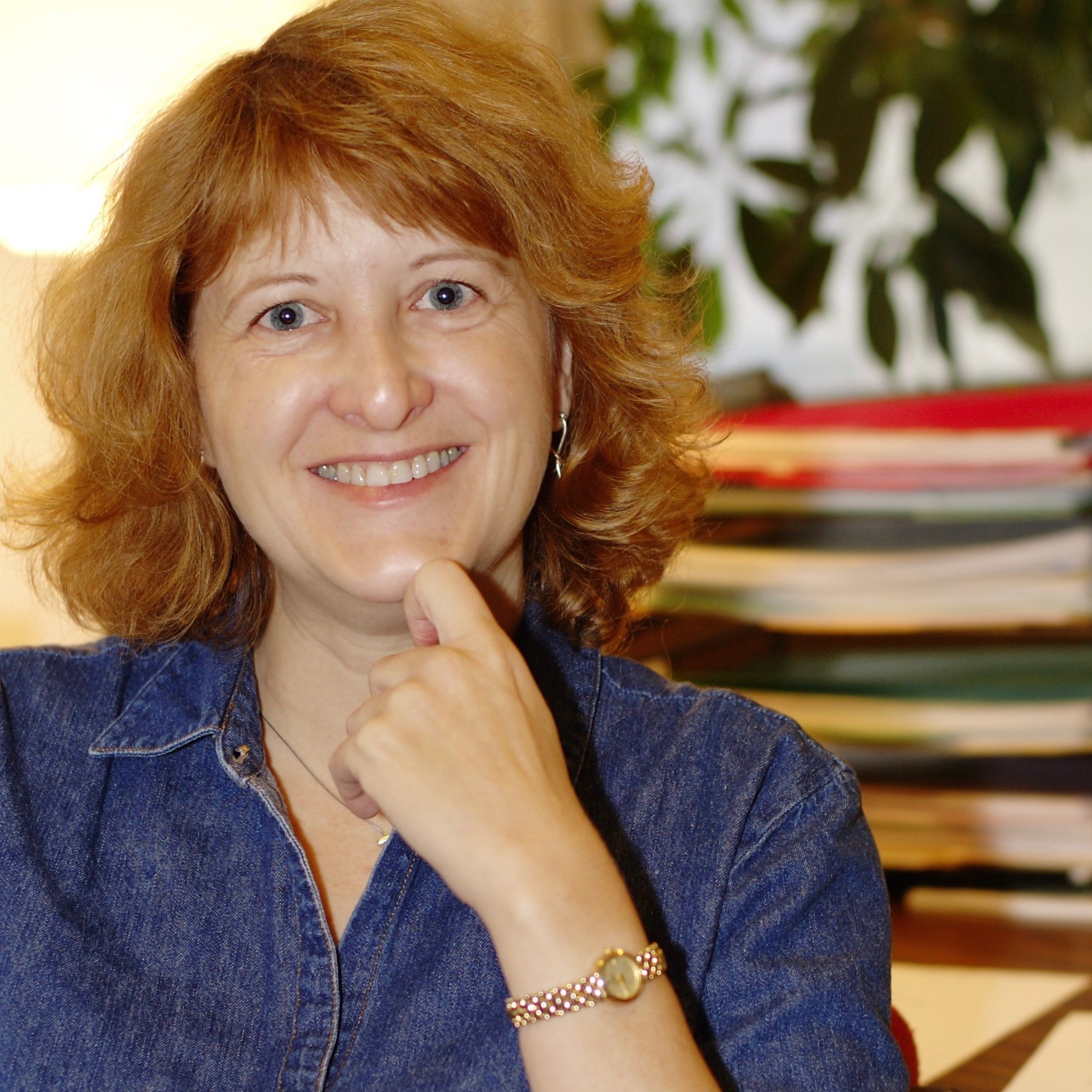 Noreen Herzfeld is the Nicholas and Bernice Reuter Professor of Science and Religion at St. John’s University and the College of St. Benedict. She holds degrees in Computer Science and Mathematics from the Pennsylvania State University and a Ph.D. in Theology from the Graduate Theological Union, Berkeley.Herzfeld is a research associate at ZRS Koper and the Research Institute for Theology and Religion, University of South Africa.
Noreen Herzfeld is the Nicholas and Bernice Reuter Professor of Science and Religion at St. John’s University and the College of St. Benedict. She holds degrees in Computer Science and Mathematics from the Pennsylvania State University and a Ph.D. in Theology from the Graduate Theological Union, Berkeley.Herzfeld is a research associate at ZRS Koper and the Research Institute for Theology and Religion, University of South Africa.
Herzfeld teaches in both the Department of Computer Science and the Department of Theology at St. John’s University and the College of St. Benedict, reflecting her two primary research interests—the intersection of religion and technology, and religion and conflict. Topics include computer theory, computer ethics, theology in the light of science, the spirituality and politics of Islam, and ministry in a technological age.
Herzfeld is the author of In Our Image: Artificial Intelligence and the Human Spirit (Fortress, 2002), Technology and Religion: Remaining Human in a Co-Created World (Templeton, 2009), The Limits of Perfection in Technology, Religion, and Science (Pandora, 2010), and editor of Religion and the New Technologies (MDPI, 2017). She has published numerous articles and book chapters and is a frequent speaker on the prospects for AI, ethical issues in technology, and Islam. She is the founder and a writer for the Avon Hills Salon.
Funded Project: Authentic Relationship in the Age of AI
How does artificial intelligence (AI) change the way we relate to one another and to the world around us? This is a big question, and a timely one, as AI algorithms and robotics infiltrate more and more aspects of our lives. AI algorithms dictate what we see on our social media feeds and what information Google lists first. We increasingly outsource our memories to Instagram or Facebook, turn to online pornography or sex bots, and our armies rely on drones while developing more fully autonomous weapons. AI can facilitate our being present to one another (think social media), it can obfuscate that presence (again, think social media), and it can remove real presence (think fully autonomous weapons). How can we evaluate and then wisely use such a varied tool?
Relationship lies at the center of our humanity. Swiss theologian Karl Barth, among others, interpreted the Imago Dei, the image of God in which humans were created, as relationship. Barth wrote that we image God only within our relationships, for these relationships reflect a God who is also a relationship—that between Father, Son, and Spirit. Barth posits four criteria for an authentic relationship—that we look the other in the eye, speak to and hear the other, aid one another, and do so gladly. These criteria suggest that embodiment is a sine qua non for true presence.
As we consider the present state of AI in a number of domains (sex bots, social media, autonomous weapons, social robots) we must assess how our use of these systems affects our prospects for authentic relationships, with computers themselves and with other humans in situations where we use AI to mediate our communication.
Project Outputs:
Technology and Presence: Searching for Meaning in a Digital Age, Co-Edited volume with Ilia Delio (in-progress)
Artificial Intelligence and Authentic Relationships, Fortress Press (Summer, 2022)
“Tool, Partner, or Surrogate? in Journal of Moral Theology (Spring, 2022)
“Can Lethal Autonomous Weapons be Just?” co-authored with Gen. Robert Latiff, Peace Review, (Spring, 2022)
“The Escatalogical Future of AI: Utopia or Dystopia?” in Cambridge Companion to Artificial Intelligence, Cambridge University Press (forthcoming)
“A Digital Revolution? Ethical Implications and Interreligious Engagement,” Panel sponsored by Interreligious Forum of the G20 (July, 2021)
“AI, Agency, and Deception,” Joint forum of ZRS Koper and IRCAI (July, 2021)
“Servant of Partner? What are We Looking for when We Look for AI?” Society of Philosophy and Technology Annual Conference, (June, 2021)
“Surrogate, Partner, or Tool: How Autonomous Should Technology Be? in The Robot Will See You Now: Theological, Social and Ethical Implications of AI and Robotics (July, 2021)
“Why Chatbots Fail,” Temple University (October, 2021)
“AI: A New Neighbor or a Divisive Force?” at Chautauqua Institute (July, 2020)
“AI: A New Neighbor or a Divisive Force?” at the Fuller Theological Seminary (January, 2020)
“Ghosts or Zombies: On Separating Body and Mind,” at the Institute of Buddhist Studies (October, 2019)
“Cybernetic Enhancement and the Problem of the Self” at St. Mary’s University Scotland (April, 2019)